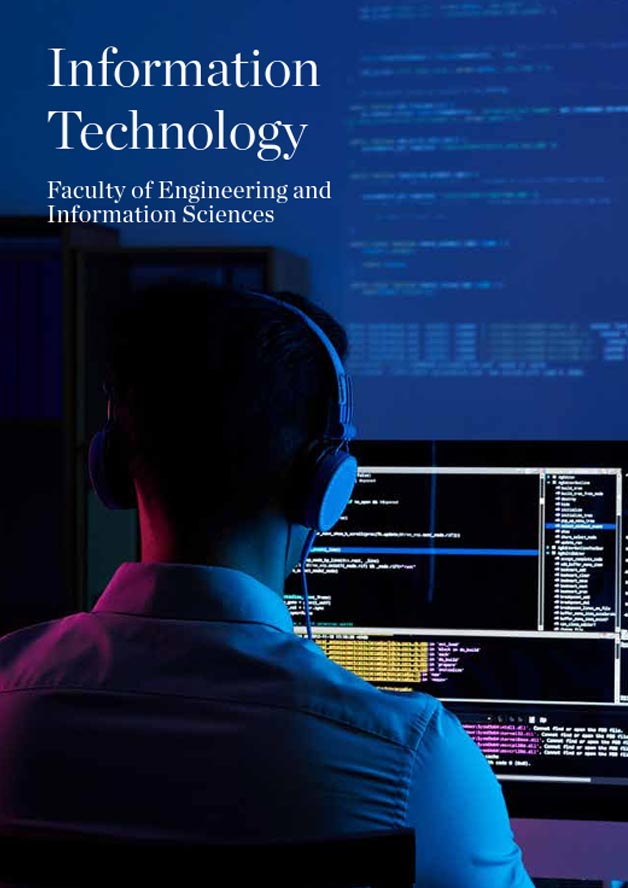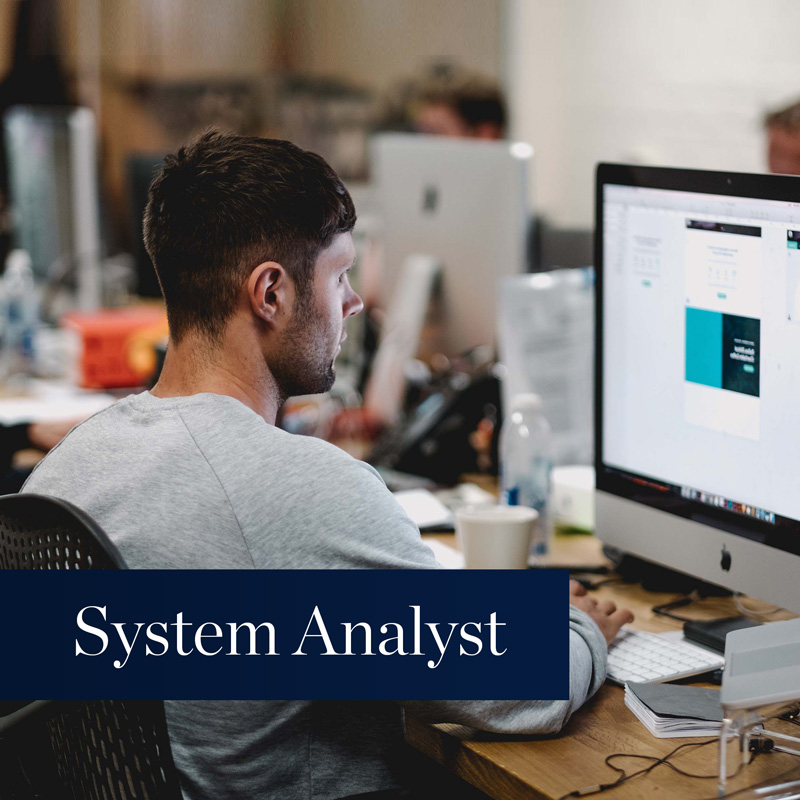- Home
- Degrees
- Postgraduate
- Information Technology
- Master of Digital Transformation
Master of Digital Transformation
Duration
18 months
10 subjects
Classes commence
| September (Autumn) |
| January (Winter) |
| April (Spring) |
Fees*
AED 9,415.35 / USD 2,565 per subject
*VAT 5% inclusive
Considered as a pillar of the fourth industrial revolution, digital transformation is an area of critical importance to companies and governments. The magnitude of this importance was accentuated by the current pandemic, which has led companies to accelerate their adoption of solutions rapidly derived by their own digital transformations. Despite its importance, skills in digital transformation are scarce, and this field is considered a niche, with huge demand for talent in the job market.
To fulfil the need for specialists with digital transformation skills, the University of Wollongong in Dubai is offering a Master in Digital Transformation (MDT) program aiming at equipping students with the knowledge, skills, and mindset required to lead and drive digital transformation initiatives in various industries.
Specifically, the program aims to:
In collaboration with

- Develop well-rounded professionals who can bridge the gap between business and IT by defining digital transformation strategies and implementing digital solutions.
- Enhance students' strategic thinking and problem-solving abilities, enabling them to analyze complex challenges and develop innovative and practical solutions using prominent digital transformation technologies.
- Develop students' soft skills, including communication, teamwork, ethics, and professional conduct, to prepare them for success in today's multidisciplinary workplace.
- Produce graduates who can drive innovation and create sustainable solutions by effectively utilizing digital technologies and aligning business and IT strategies.
What is Digital Transformation really about and why is it so important nowadays?
Digital transformation is a global phenomenon that has swiftly ascended the priority ladder within organsations worldwide. In essence, digital transformation is the art of reimagining businesses in the digital age. It encompasses the infusion of digital technology into every facet of a business, triggering profound shifts in its operations and value delivery mechanisms.
The relevance of digital transformation cannot be overstated. It is the catalyst for enhanced efficiency, productivity, and innovation. Furthermore, it equips organisations with the tools to comprehend their customers better, resulting in an elevated customer experience. In the United Arab Emirates (UAE), digital transformation stands as a pivotal driver of economic expansion and social progress.
Digital Transformation in numbers:
Here's a glimpse of the numeric potential behind digital transformation:
- Digital technology is projected to constitute 25% to 30% of the global gross domestic product (GDP) in the upcoming decade.
- Spending on digital transformation is anticipated to surge with a compound annual growth rate (CAGR) of 16% in the Middle East region.
- The UAE leads the charge in the digital transformation movement across the Middle East.
- The UAE's digital economy is projected to surpass $140 billion by 2031, soaring from its current nearly $38 billion status.
- Digital technology expenditure in the UAE is forecasted to reach $20 billion by 2026.
- The UAE is strategically positioned to double its digital economy's contribution to GDP, from 9.7% to 19.4%, within the next decade.
Key Pillars of a Successful Digital Transformation
Achieving a successful digital transformation rests upon three fundamental pillars:
- Strategy: This serves as the blueprint for the journey, outlining the transition from legacy systems to innovative, digitized ones.
- Technologies: These are the indispensable tools for implementing and realizing the digital transformation solutions.
- Customer Experience: At the apex of this transformation pyramid lies the ultimate objective—to enhance the customer experience, making it seamless, frictionless, and enjoyable.
The Allure of Digital Transformation for Organisations
Why do organisations find themselves drawn to digital transformation? It's because of the manifold advantages it presents. Digital transformation offers substantial potential in terms of process digitization, streamlining, and the automation of manual tasks. The automation of repetitive processes not only translates to significant time and cost savings but also a reduction in errors.
Furthermore, digital transformation adopts a data-driven approach to business. By harnessing the vast reservoirs of structured and unstructured data at our disposal, organisations can glean profound insights into customer needs, desires, product perceptions, and even societal trends. These capabilities converge to deliver an enriched customer experience and a heightened competitive edge in the market.
The 55% Surge in Demand: A Career Catalyst
As McKinsey and Co. forecasts a remarkable 55% surge in demand for technological skills in the coming seven years, it becomes evident that the pursuit of a Master's in Digital Transformation is not merely a degree but a strategic career catalyst. This demand surge paves the way for graduates to step into high-demand roles, shaping the digital destiny of organizations and industries. Armed with a comprehensive understanding of digital transformation principles, graduates can position themselves as invaluable assets to organisations yearning for adept leaders in this transformative journey.
In essence, the challenges embedded within the digital transformation landscape are a crucible wherein students have the opportunity to forge their future. By acquiring the knowledge, skills, and insights offered by a Master's program in Digital Transformation, students can position themselves as the architects of tomorrow's business and technology landscape. They become the bridge between the challenges faced by organisations and the solutions that drive progress and innovation.
Students applying for a master's degree must have completed a bachelor's degree (or equivalent) at an accredited institution of higher education and have achieved the minimum grades outlined below:
| Country | Direct Admission | Probationary Entry* GPA 2.5-2.99 or equivalent |
Conditional Entry** GPA 2.0-2.49 or equivalent |
|---|---|---|---|
| Australia | 65% | 57% | 50% |
| Brazil | 7/10 | 6/10 | 5/10 |
| China | 75% | 63% | 50% |
| Colombia | 3.5/5 | 3.25/5 | 3/5 |
| Egypt | 65% (Good) | 57% | 50% (Pass) |
| India | 50% | 45% | 40% |
| 10 Point System: 7.0/10.0 | 10 Point System: 6.0/10.0 | 10 Point System: 5.0/10.0 | |
| 4 Point System: 3.0/4.0 | 4 Point System: 2.5/4.0 | 4 Point System: 2.0/4.0 | |
| Iran | 14 | 13 | 12 |
| Japan | 70/100 or 4/5 | 65/100 or 3.5/5 | 60/100 or 3/5 |
| Jordan | 70% | 60% | 50% |
| Kenya | 50% | 45% | 40% |
| Lebanon | 11 | 10.5 | 10 |
| Mexico | 8/10 | 7/10 | 6/10 |
| Nepal | 50% | 45% | 40% |
| Nigeria | 50% | 45% | 40% |
| Pakistan | 50% | 45% | 40% |
| Russia | Average of 4 | Average of 3.5 | Average of 3 |
| South Korea | 80/100 | 75/100 | 70/100 |
| UAE | 3 | 2.5 | 2 |
| UK | 2nd Class Honours with lower division (or min 50%) | 45% | Pass (or min 40%) |
| USA | 3 | 2.5 | 2 |
* Applicants with a Bachelor’s degree in the relevant field of study, or its equivalent, with an overall GPA between 2.5 and 2.99 (on a 4.0 scale) may be conditionally admitted to a master’s program, only if they meet the necessary English language requirement. Such students must take a maximum of 18cp of subjects studied for the master’s degree during the period of conditional admission and must achieve an overall WAM of 55 in their first 3 subjects at the University. Students who fail to achieve this standard may have their enrolment discontinued.
** Applicants with a bachelor’s degree in the relevant field of study, or its equivalent, with an overall GPA between 2.0 and 2.49 (on a 4.0 scale) may be conditionally admitted to a master’s degree, only if they meet the necessary English language requirement and they will be required to complete a maximum of 18cp remedial non-credit bearing subjects prior to enrolment in their chosen master’s degree. Students must achieve a minimum WAM of 55 in these subjects in order to progress to the master’s degree or may have their enrolment discontinued.
Note:
[1] Unless otherwise stated, the entry requirements above are based on Section I institutions. Further details on alternate entry requirements can be obtained by contacting the Admissions department.
[2] A recognized bachelor’s degree in a related field such as IT, engineering, business information systems or any bachelor’s degree with relevant professional experience and/or certification.
[3]Students with bachelor degrees in non-related fields could be admitted to the program subject to an interview and completion of remedial subjects.
At UOWD, all classes are taught in English and in order to enrol in a master's degree you will need to submit one of the following certificate of English language proficiency:
| English Language Test | Entry Score |
|---|---|
| IELTS Academic |
Overall score of 6.0 with 6.0 in Reading and Writing and 5.0 in Listening and Speaking |
| TOEFL Internet based |
79 with not less than 20 in Writing, 18 in Reading, 17 in Listening, 16 in Speaking |
| TOEFL Computer based |
213 with a 4.0 TWE/Essay Writing |
| TOEFL* International paper based |
550 with a 4.0 TWE/Essay Writing |
| EmSAT Achieve English |
1400 |
Note: Students who have achieved an overall Academic IELTS score of 6, but with a minimum of 5 in reading and writing for their relevant program, may opt to take Academic Writing as an additional subject during their first semester at an additional fee of AED 1,050/USD 286. A 50% pass rate is required to clear the post enrolment condition. Alternatively, the student may opt to retake the IELTS test.
* Students admitted under this criterion must complete the test at AMIDEAST.
If you are seeking credit for prior learning, you will need to submit an official academic transcripts showing all courses studied and the grades obtained, syllabus details (including information on course content) for the courses you have successfully completed and an explanation of the grading system. Your eligibility for Credit for Prior Learning will be decided in consultation with UOWD's Faculty Offices prior to the beginning of the program.
To make an application for your chosen program, complete the online application form and submit it along with all your supporting documentation (see below) prior to the application deadline.
Late applications may be accepted subject to the availability of places but applicants are encouraged to apply as early as possible.
The following records are required to process your application. Please ensure that all these documents accompany your UOWD application for admission form submittal:
- The original transcripts of your bachelor’s degree results
- A Certificate of Completion
(If the above documents are not in English, a certified English translation is required)
- Proof of your english language proficiency
(Note: Results from IELTS & TOEFL tests must be sent to the University directly from the IELTS or TOEFL testing centres quoting the UOWD institution code IELTS: AE109 / TOEFL: 7907)
- Your current resume or CV
- A copy of your UAE ID card (if applying from within the UAE)
- A copy of your passport (and Residence Visa, if resident in the UAE).
Additionally, if you are seeking advance standing in your chosen program:
- Certified copies of official academic transcripts showing all courses studied and grades obtained, syllabus details (including information on course content) of the courses you successfully completed and an explanation of the grading system.
Applications are required to obtain attestation / equivalency of their bachelor’s degree from the UAE Ministry of Education. The attestation / equivalency process is dependent upon whether you completed your bachelor’s degree within the UAE or outside the UAE.
If the bachelor’s degree was completed outside UAE, you must have your bachelor’s degree and transcripts/mark sheets certified by:
- The issuing University and/or recognised authority for tertiary education in the host country in which you completed your education
- The Ministry of Foreign Affairs in the host country
- The UAE Embassy in that host country OR the Embassy of the host country in UAE must attest the authenticity of the documents and attestations.
Additionally, the UAE Ministry of Education must issue an Equivalency Certificate. Applicants must have a valid UAE residency visa when applying for an Equivalency Certificate. In special cases where complying with conditions (2) and (3) are not feasible, the certificates may be verified against originals by Embassies in the UAE and the UAE Ministry of Foreign Affairs.
If you are unable to secure the Equivalency Certificate(s) as outlined above will be asked to sign a “Consent to Provide Documents” form agreeing to secure the equivalency. You will be permitted to commence your studies at UOWD, but will be given a maximum of one semester to obtain the equivalency certificate(s). UOWD reserves the right to take appropriate action against any applicant who cannot secure the appropriate documentation in this time, which may result in the termination of the student’s enrolment at UOWD.
For more information or assistance on attesting documents from outside UAE, click here.
Program Structure
The Master of Digital Transformation program is 60 credit points and consists of: (1) a core component covering essential topics related to any digital transformation initiatives; (2) an elective component covering prominent digital transformation technologies that can be used for the implementation of DT initiatives, and are highly in demand in the market, and (3) a professional practice & research component aiming at the application of the taught concepts to solving a real-life problem.
The program comprises a total of 10 subjects, including 5 core subjects, 3 elective subjects and a final project (counting as 2 subjects).
- A recognized bachelor’s degree in a related field such as IT, engineering, business information systems or any bachelor’s degree with relevant professional experience and/or certification.
- Students with bachelor degrees in non-related fields could be admitted to the program subject to an interview and completion of remedial subjects.
- Minimum English language proficiency such as an overall IELTS score of 6.0 or equivalent
Core Subjects
Choose any three Electives from the approved list below:
Research project
Program Outcomes
Upon successful completion of this program, a student should be able to:
- Identify strategic opportunities and challenges in the field of digital transformation and examine the impact of digital cultures on organizations.
- Analyze real-world problems related to digital transformation and independently develop suitable strategies and practical solutions.
- Apply modern data science and artificial intelligence knowledge and skills to solve problems and gain a competitive advantage.
- Assess the potential of digital transformation in driving innovation, entrepreneurship, and the creation of sustainable solutions.
- Demonstrate proficiency in soft skills required for the modern, multidisciplinary workplace, including advanced communication, effective teamwork, ethical decision-making, and professional conduct.
The program aims at developing well-rounded professionals who can define digital transformation strategies and implement digital solutions. Graduate will be able to pursue careers such as:
- Digital solutions architect
- Digital strategy consultant
- Digital solutions developer
- Digital transformation manager
- Digital transformation director
Accreditation and Recognition
All degrees at the University of Wollongong in Dubai are accredited by the Commission for Academic Accreditation (CAA) of the UAE Ministry of Education and are licensed by the Knowledge and Human Development Authority (KHDA). In addition, the degree is quality assured by UOW, which is registered with the Tertiary Education Quality and Standards Agency (TEQSA), the national regulator of the higher education sector in Australia.
Students will be issued a UOW Australia degree upon graduation.
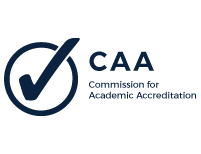
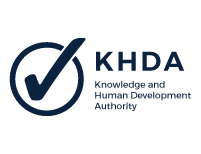

Prof May El Barachi
Head of School
School of Computer Science
Dr El Barachi is an Associate Professor at the Faculty of Engineering & Information Sciences and is a next generation networking expert currently teaching the subjects of Information & Communication Security, Distributed Systems & Cloud Computing, as well as Programming in the Bachelor of Computer Science and the Bachelor of Information Technology programs.
Read MoreFaculty
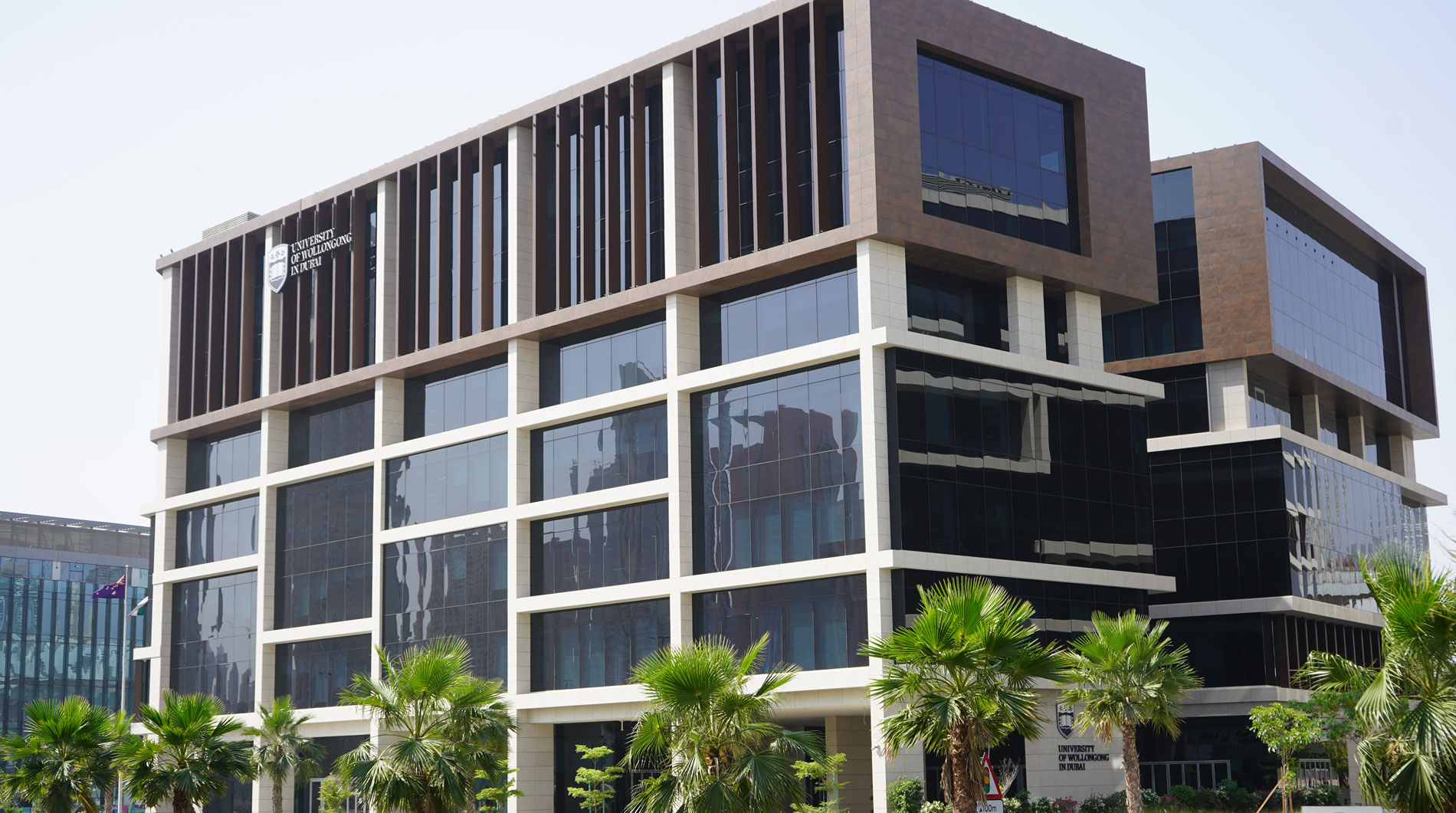
Open Day
Attend our next Open Day on Saturday, 27 April 2024.
Join our experts to learn more about our degrees and how you can enrol at UOWD.


